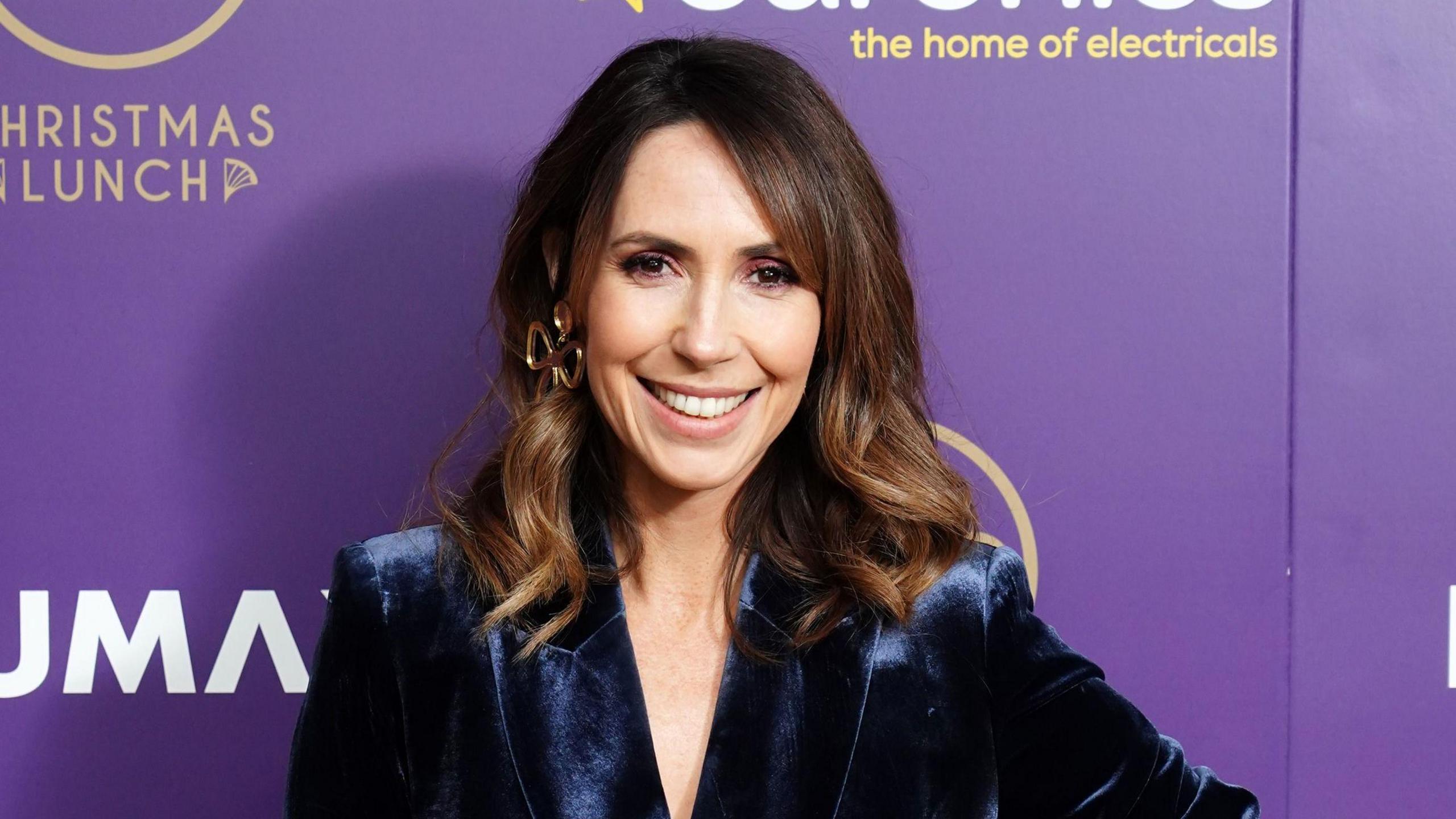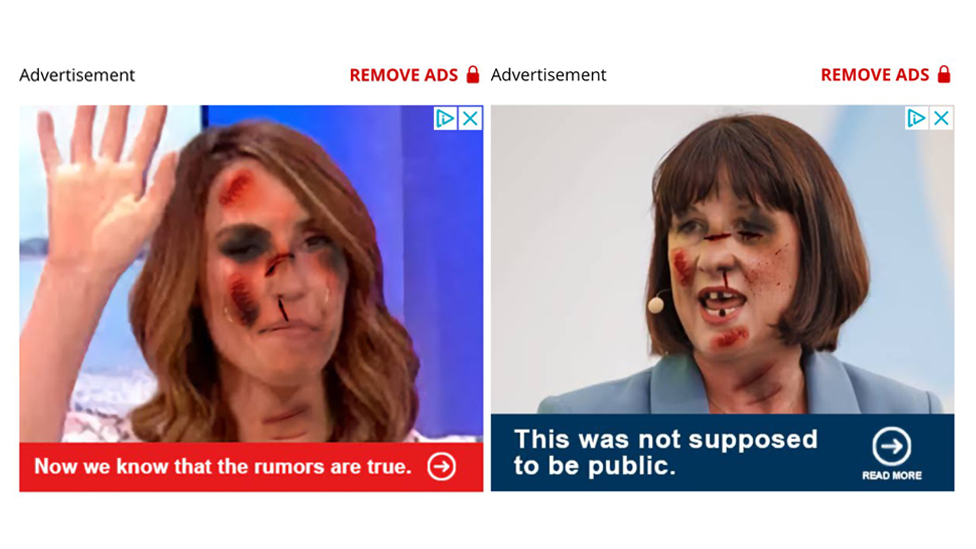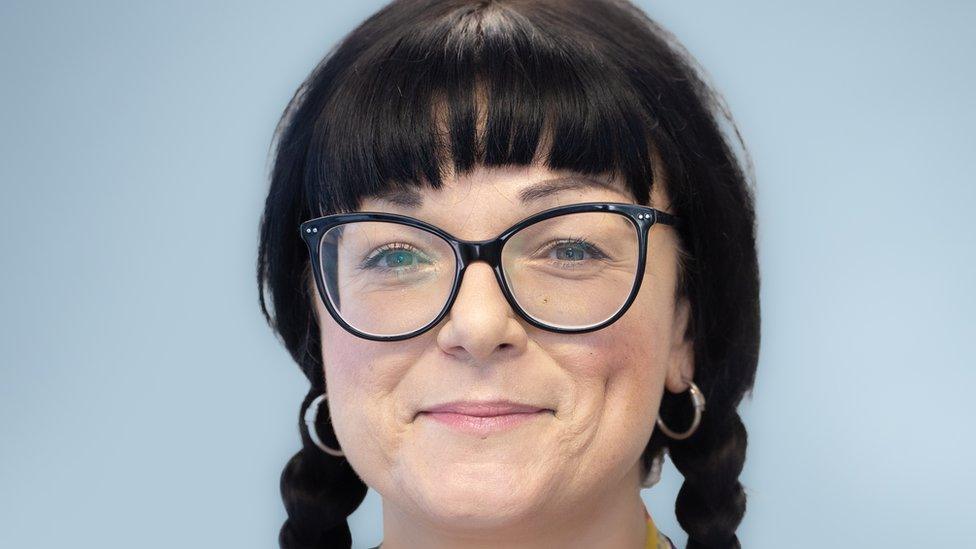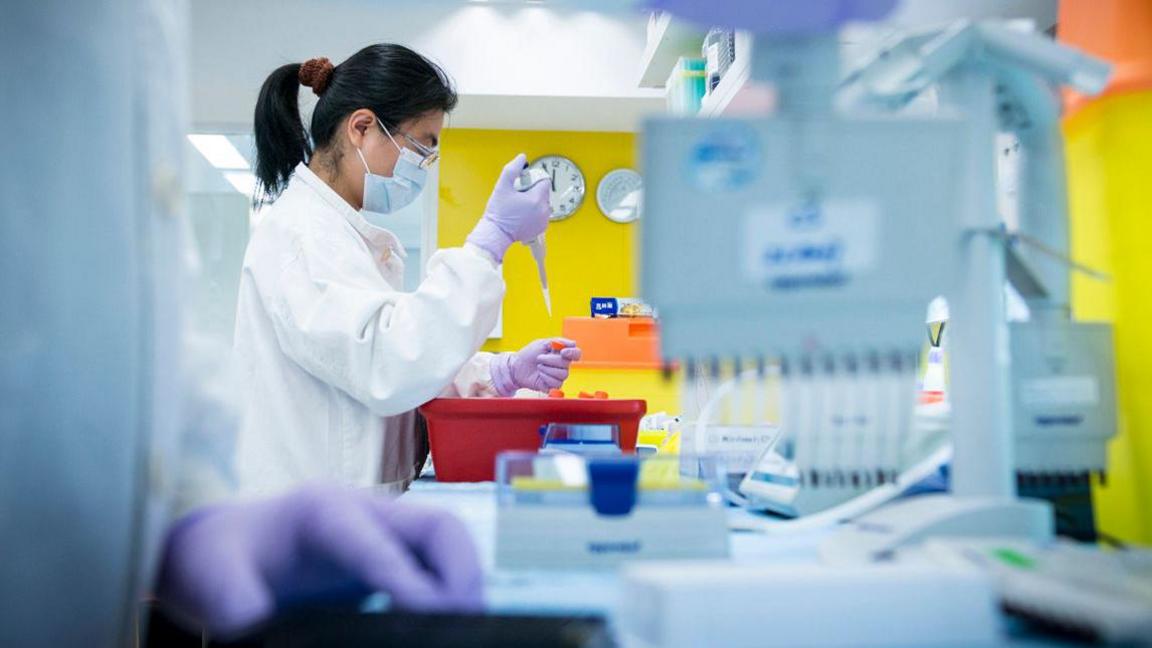News app shows fake bloodied Alex Jones AI advert

Anyone tapping on the fake picture of Alex Jones is taken to a website showing doctored BBC news articles
- Published
A publisher has been criticised for running adverts with "disturbing" fake images of TV presenter Alex Jones and Chancellor Rachel Reeves.
Users of the WalesOnline app, published by Reach, saw AI-generated photos of Reeves and Jones with blood and bruises on their faces.
If tapped on, the adverts take readers to fake BBC News articles promoting cryptocurrency.
Reach has been asked to comment.
The company, which is the UK and Ireland's largest publisher, operates some of the best-known news brands including the Mirror and the Express.

Readers have branded the fake advert "dystopian" and "dross"
Its Welsh operation includes WalesOnline and papers including the Western Mail and the South Wales Evening Post.
The doctored images of Jones and Reeves appeared among genuine news articles on the WalesOnline app.
Cabinet member for culture on Cardiff council, Jennifer Burke, branded the adverts "disturbing".
Writing on X, formerly Twitter, she said: "Does Reach or @WalesOnline have a responsibility to vet what's advertised on their platforms? These kinds of visuals cross a line."
Another X user said the adverts were "dystopian" and "dross".
Jones and Reeves have both been asked to comment.
Are AI images becoming a problem?
AI-generated images are being increasingly shared on social media in relation to news content.
Sometimes these images are created and shared online as satire, but other times they are posted to mislead unsuspecting users or to promote scams.
But there are still signs that can help you identify images generated with AI.
The technology usually struggles to generate realistic human hair, fingers and toes, produces unnaturally cartoonish skin tones and limbs, unintelligible text and numbers in images, as well as indistinct backgrounds.
It's also possible to use free reverse image search tools to determine if an image has been posted elsewhere, including by major news outlets or official bodies.
If AI adverts direct you to a fake news page that looks like a major news outlet, like the BBC, you can quickly check the BBC News website or app to see if that story has actually been published.
Related topics
- Published27 March 2024

- Published20 September 2024

- Published12 September 2024
